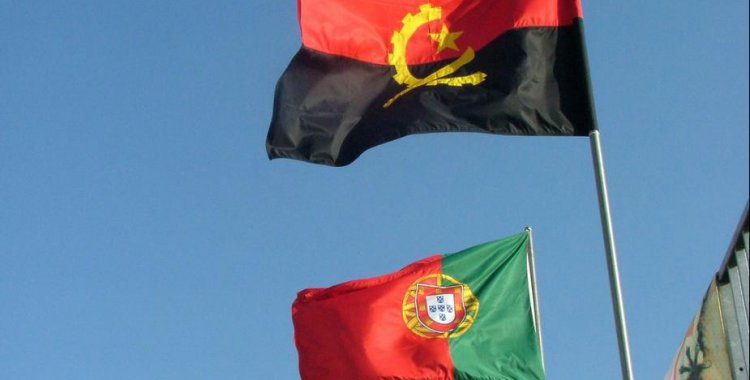At issue was the opening of an investigation by the Portuguese Public Prosecutor's Office into three senior leaders of the Angolan regime - Manuel Vicente, then vice-president and former administrator of the oil company Sonangol; General Hélder Vieira Dias, better known as 'Kopelipa', Minister of State and head of the Military House of the President, José Eduardo dos Santos; and Leopoldino Nascimento, consultant to general 'Kopelipa' - on suspicion of economic crimes, more specifically evidence of fraud and money laundering.
The news of the opening of the criminal inquiry had been advanced by the weekly newspaper Expresso.
The shock waves became more evident when, on October 15, 2013, the then President José Eduardo dos Santos, announced in Luanda the end of the strategic partnership with Portugal, during the speech on the state of the Nation, in the National Assembly of Angola.
"Only with Portugal, things are not going well. There have been misunderstandings at the summit level and the current political climate, prevailing in that relationship, does not advise the construction of the previously announced strategic partnership", said José Eduardo Santos.
Portugal and Angola had planned to hold, in Luanda, in February 2014, the first bilateral summit, which had been announced a year earlier by the then Portuguese Minister of Foreign Affairs, Paulo Portas.
Over time, the "irritant" lost strength and came to be considered a "sovereignty case", the exclusive responsibility of the Portuguese justice system, as defined in the interview given to Lusa on Friday by the President, João Lourenço.
In November 2017, Prime Minister António Costa, who is visiting Angola on Monday and Tuesday, considered that the "only irritant" in relations with Angola has to do with an issue "of the exclusive responsibility" of the Portuguese justice system, that cannot influence foreign policy.
"It became clear that the only irritant that exists in our relations is something that transcends the President of the Republic of Angola and the Prime Minister of Portugal, transcends political power, and has to do with an issue of the exclusive responsibility of the Portuguese judicial authorities", then stressed António Costa.
The first years of suspension of the "frozen" strategic partnership by José Eduardo dos Santos were complicated and brought to the fore the ghosts born on 11 November 1975, when Angola gained independence, which Portugal only recognized on 22 February 1976, with the establishment of diplomatic relations on March 9 of that year.
Between 6 and 13 October 2013, two days before José Eduardo dos Santos "freeze" the strategic partnership, Jornal de Angola dedicated three editorials and five opinion articles to Portuguese-Angolan relations.
Eleven years after the "annoying" became public and notorious, the leaders of both countries have taken pains to leave these disagreements in the dust of history.
On September 17, 2018, Prime Minister António Costa begins a two-day official visit to Angola, during which he will seek to quickly return to pre-2014 levels in economic relations and normalize bilateral political-diplomatic contacts.
This official visit by the Prime Minister to Angola took place after a period of political stalemate between the two countries.
It was only after the court decision to transfer Manuel Vicente's case to Luanda, last May, that high-level State visits were no longer suspended by order of the Angolan Government.
On the economic front, with the drop in oil prices on international markets from 2014 onwards, Angola entered a recession, which significantly reduced the value of its transactions with Portugal (around 40 percent until 2017). From the end of 2017, however, Angola began to show signs of recovery.
On Tuesday, after the meeting between João Lourenço and António Costa, the two governments signed about a dozen agreements, including a convention for the end of double taxation and a memorandum for the progressive settlement of debts of Angolan public entities to Portuguese companies, whose global amount is estimated between 400 and 500 million euros.
On November 22, 2018, João Lourenço made a three-day state visit to Portugal, which can be considered as a cause-effect relationship of the easing of bilateral relations due to the Lisbon Court of Appeal having sent Manuel Vicente's case to the Angolan judicial authorities, as was the intention of the Angolan head of state.
On the occasion, Prime Minister António Costa said that João Lourenço's visit "re-establishes the normality of a relationship that is very fruitful on both sides and that must continue and should hopefully continue to be deepened", quoting the Angolan President himself.
The funeral of José Eduardo dos Santos was yet another opportunity, and pretext, to bring the two countries closer together, with President Marcelo Rebelo de Sousa representing the Portuguese State at the funeral.
Marcelo returned to Angola three months later, for the inauguration of João Lourenço for the second presidential term.
The "irritant", that one, had definitely passed into history.







